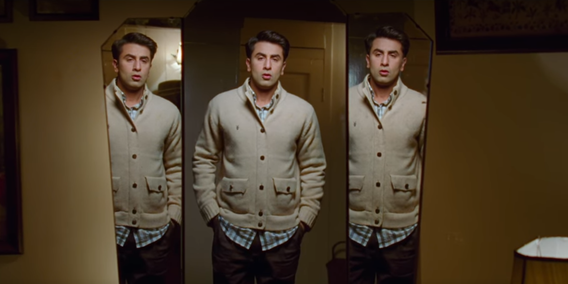You’re Social, But Still Lonely
Because not all connection is connection that feeds you.
In our fourth session, she said it softly—like she didn’t want to offend her own life.
“I know I’m lucky. I have a partner who adores me. My family checks in. I have people. But... I still feel lonely. I don’t know why.”
She lives across continents—this is the fourth country she’s called home in just thirty years. Her constants have been her parents. And like many Indian parents, theirs is a love laced with concern, pride, and the quiet ache of emotional misattunement. It's not neglect. It's a generational grammar of care that doesn’t always translate into closeness.
She is married. She is cared for. But what she misses is something quieter, smaller, harder to name.
Not a date night. Not a text from family. Not a group chat of birthday wishes.
She misses the kind of closeness that can say, “I just don’t feel alright today. And I don’t need you to fix it. I just want someone to know.”
What This Kind of Loneliness Feels Like
Adult loneliness doesn’t always feel like silence. It can feel like:
- Politeness at brunch
- A calendar full of plans
- Conversations that hover, never land
- Connection that’s scheduled, not spontaneous
It’s the ache that arrives after a dinner party—the moment everyone leaves, and you're left wondering if anyone really knows you.
Loneliness isn’t the absence of people. It’s the absence of being known.
The Psychology of Loneliness
Psychologist John Cacioppo, a pioneer in the field of social neuroscience, described loneliness not as a lack of company—but a perceived gap between the social connection you have and the connection you desire.
Many of us have relationships. What we don’t have is relational attunement—that felt sense that someone sees the inner weather of your day and stays with it.
And when your external world looks “fine,” it becomes harder to name the internal ache. You begin to doubt your own emotional needs.
Why Adult Friendships Don’t Always Feed Us
In therapy, she named it: “I thought moving here, being busy, having people—I thought that would help.”
But we don’t just need company. We need what Carl Rogers called unconditional positive regard—spaces where we can be honest, even unrefined, and still feel accepted.
Adult friendships are often born from shared contexts: work, neighbours, weddings. But connection built on proximity isn’t always connection built on vulnerability.
We learn early on—especially in high-functioning, emotionally avoidant families—that sharing pain may lead to discomfort, judgment, or dismissal. So we stop.
We become adults who confuse presence for intimacy. Who forget how to let people in.
Why She Still Feels Lonely
Because being loved is not the same as being understood.
Because socialising doesn’t equal emotional intimacy.
Because we’re not meant to carry our inner world alone.
Attachment theory helps explain this. When our early bonds teach us to earn closeness through performance—achievement, compliance, emotional containment—we grow up unsure of how to receive connection without doing something for it. Loneliness, then, becomes the tax we pay for self-protection.
A Gentle Reframe
“Maybe you’re not broken. Maybe you’re just underfed—emotionally.”
If that sounds like you, begin where she did—not with a grand gesture, but with a quiet noticing:
- What kind of connection feels nourishing to you?
- Who are you when you're not performing closeness?
- What does your guard protect—and what does it block?
Loneliness isn’t a flaw. It’s a signal. A whisper that your emotional world is ready to be met with more honesty, more courage, more care.
Tools for When It Aches
Sunday Journaling Series – ₹199
A weekly ritual for quiet self-connection. Reflect, regulate, and slowly lower the guard. For when you want clarity—not noise.
Explore Journaling SeriesStart where it hurts. Even the softest loneliness deserves to be named.








